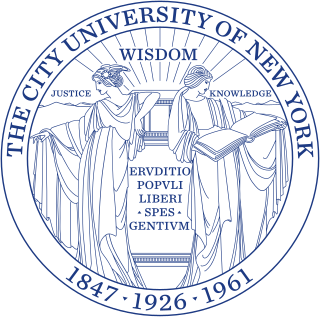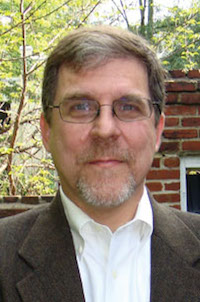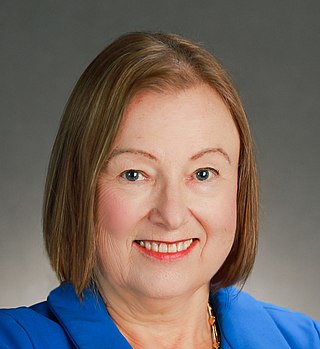Career
Robbins graduated from Wellesley College in 1974, with a bachelor's degree in political science. She subsequently attended University of California, Berkeley, receiving master and doctorate degrees in political science. [2]
In 1982, Robbins worked as an editor and, later, as a State Department reporter for BusinessWeek. In 1986, she began working as the Latin America bureau chief for U.S. News & World Report, where she later became a senior diplomatic correspondent. In 1993 she began working as a reporter and news editor at The Wall Street Journal, going on to be their lead writer on foreign policy. [2] In July 2006, she joined the editorial board of The New York Times. In January 2007, she became the deputy editorial page editor. [3] In July 2012, Robbins left The New York Times. She is now the faculty director of the Master in International Affairs program and a Clinical Professor of National Security Studies at the Marxe School of Public and International Affairs Baruch College. [4] [5] She is also a senior fellow at the Council on Foreign Relations. [6]
A foreign policy commentator, she is considered an expert on national security and defense issues, with a particular focus on nonproliferation, Iran and North Korea, American politics and foreign policy, Washington’s budget battles, defense spending, and US military rivalries and interventions. [1]

The City University of New York is the public university system of New York City. It is the largest urban university system in the United States, comprising 25 campuses: eleven senior colleges, seven community colleges, and seven professional institutions. In 1960, John R. Everett became the first chancellor of the Municipal College System of New York City, later known as the City University of New York (CUNY). CUNY, established by New York State legislation in 1961 and signed into law by Governor Nelson Rockefeller, was an amalgamation of existing institutions and a new graduate school.

The Pulitzer Prize is an award administered by Columbia University for achievements in newspaper, magazine, online journalism, literature, and musical composition in the United States. It was established in 1917 by provisions in the will of Joseph Pulitzer, who had made his fortune as a newspaper publisher.
The Graduate School and University Center of the City University of New York is a public research institution and postgraduate university in New York City. Serving as the principal doctorate-granting institution of the City University of New York (CUNY) system, The CUNY Graduate Center is classified among "R1: Doctoral Universities – Very High Research Activity". The school is located at the B. Altman and Company Building at 365 Fifth Avenue in Midtown Manhattan. The CUNY Graduate Center has 4,600 students, 31 doctoral programs, 14 master's programs, and 30 research centers and institutes. It employs a core faculty of approximately 140, who are supplemented by 1,800 faculty members from CUNY's eleven senior colleges and New York City's cultural and scientific institutions.

Baruch College is a public college in New York City. It is a constituent college of the City University of New York system. Named for financier and statesman Bernard M. Baruch, the college operates undergraduate and postgraduate programs through the Zicklin School of Business, the Weissman School of Arts and Sciences, and the Marxe School of Public and International Affairs.

Rebecca Diane McWhorter is an American journalist, commentator, and author who has written extensively about race and the history of civil rights. She won the Pulitzer Prize for General Nonfiction and the J. Anthony Lukas Book Prize in 2002 for Carry Me Home: Birmingham, Alabama, the Climactic Battle of the Civil Rights Revolution.
The Zicklin School of Business is the business school of Baruch College. It was established in 1919 and is named after financier and alumnus Lawrence Zicklin. Zicklin is the largest business school in the United States, with more than 10,000 students enrolled in its programs. Zicklin and the Murray Koppelman School of Business at Brooklyn College are the only two units of the City University of New York that are accredited by the Association to Advance Collegiate Schools of Business (AACSB).
A Luce Scholar is a recipient of a cultural exchange and vocational fellowship sponsored by the Henry Luce Foundation, a private foundation established by Time, Inc. founder Henry R. Luce.
Mitchel B. Wallerstein is an American educator, philanthropist, policy expert, and former official of the federal government of the United States. He is the President Emeritus of Baruch College of the City University of New York and is currently appointed as a University Professor, teaching courses on international security and public policy. In 2021, he was also appointed as a Non-resident Senior Fellow on U.S. Foreign Policy at the Chicago Council on Global Affairs. From 2003 to 2010, Wallerstein served as dean of the Maxwell School of Citizenship and Public Affairs at Syracuse University, ranked as the nation's leading school of public and international affairs. Throughout his career, he has led important roles within the US government, NATO, and in top universities and think-tanks.
Karl E. Meyer was an American-based journalist. The third generation of his family to be engaged in that occupation, Meyer's grandfather, George Meyer, was the editor of the leading German language newspaper in Milwaukee, the Germania; his father, Ernest L. Meyer, was a columnist for The Capital Times in Madison, Wisconsin and then the New York Post. In 1979, he joined The New York Times as the senior writer for foreign affairs, a position he held until his retirement in 1998.

James S. Robbins is an American commentary writer for USA Today and Senior Fellow for National Security Affairs on the American Foreign Policy Council. He is the former Senior Editorial Writer for Foreign Affairs at the Washington Times, an author, political commentator and professor, with a focus on national security and foreign and military affairs. He also served as special assistant in the Office of the Secretary of Defense.

Sheri Fink is an American journalist who writes about health, medicine and science.
Stephen B. Shepard is an American business journalist and academic who served as editor-in-chief of BusinessWeek magazine and was the founding dean of the CUNY Graduate School of Journalism.

The 2012 Pulitzer Prizes were awarded on April 16, 2012, by the Pulitzer Prize Board for work during the 2011 calendar year. The deadline for submitting entries was January 25, 2012. For the first time, all entries for journalism were required to be submitted electronically. In addition, the criteria for the Pulitzer Prize for Local Reporting has been revised to focus on real-time reporting of breaking news. For the eleventh time in Pulitzer's history, no book received the Fiction Prize.
Geneva Overholser is a journalism consultant and adviser. A former editor of the Des Moines Register now living in New York City, Overholser speaks and writes about the future of journalism. She advises numerous organizations, including the Trust Project, Report for America, SciLine, the Democracy Fund and the Public Face of Science project at the Academy of American Arts and Sciences. She serves on the boards of the Rita Allen Foundation, Northwestern University in Qatar and the CUNY Graduate School of Journalism Foundation.

Amanda Bennett is an American journalist and author. She was the director of Voice of America from 2016 to 2020, and the current CEO of U.S. Agency for Global Media. She formerly edited The Philadelphia Inquirer and the Lexington Herald-Leader. Bennett is also the author of six nonfiction books.

Jacob "Jack" Rosenthal was an American journalist, editor and executive best known for his work at The New York Times. He won the Pulitzer Prize for Editorial Writing in 1982.
The Marxe School of Public and International Affairs is the public policy school of Baruch College. It was established in 1994 and is the only City University of New York school dedicated to public affairs.
Bernd Reiter is a political scientist and professor at Texas Tech University. He formerly served as the Director of the Institute for The Study of Latin American and the Caribbean (ISLAC) and professor of political science for the School of Interdisciplinary Global Studies at the University of South Florida. His research focuses on democracy, race and decolonization. Reiter is a decolonization scholar and has collaborated with such authors as Arturo Escobar (anthropologist), Sandra Harding, Raewyn Connell, Catherine Walsh, Gustavo Esteva, Walter Mignolo, and Aram Ziai. He has also made contributions to Critical Whiteness Studies. In 2017, he gave a TEDx talk on The Crisis of Liberal Democracy and the Path Ahead.








